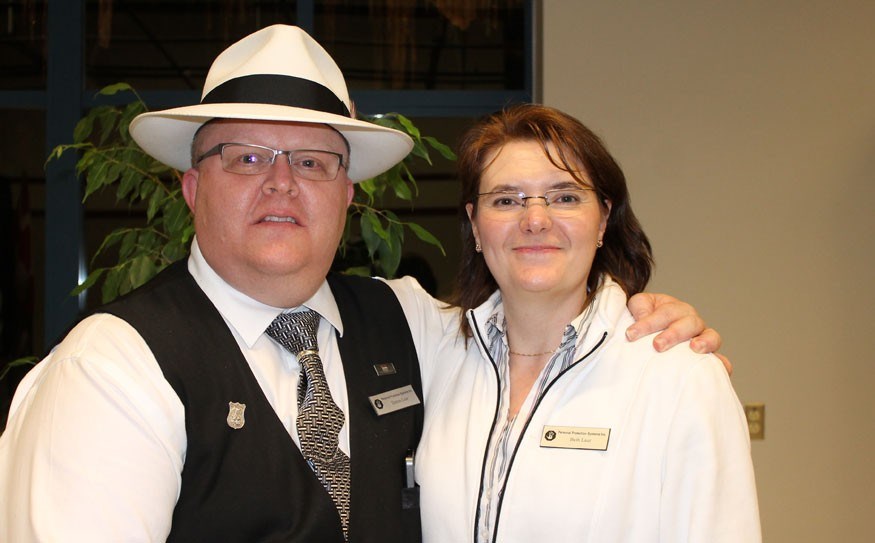Veteran cop Darren Laur personally messaged more than 350 high school students in the Sea to Sky corridor this week, showing them how to change their privacy settings on Facebook.
"That's where a lot of bad creepers start," said Laur, after an informative and frank presentation to about 35 parents at Whistler Secondary School on Tuesday night, what he described as a "good turnout."
The evening session came on the heels of lively and engaging presentations on Internet and social media safety that captured students in Squamish, Whistler and Pemberton over two days this week.
Laur's message was clear: kids are putting too much information online and they need to get savvier. And so do parents.
That messaged appeared to be getting through as his phone logged 178 messages from kids Tuesday night alone. He planned to stay up in his hotel room until 2 a.m., or until every message was answered that night.
The hours spent tightening those controls adds another level of protection for local teens or "digital citizens," as Laur calls them, who may not realize just how much information they're sharing online and what the ramifications of that may be.
"There's no such thing as privacy online right now," he said.
He touched on things like sexting, cyber bullying and online safety, among many other things, in a presentation that had many in the audience sitting up and taking notice.
"We need to start teaching our kids about good digital citizenship," said Laur, a staff sergeant with the Victoria Police Department, who teaches on the side.
While schools have a role to play in that teaching, parents also have a fundamental responsibility. They are the ones, after all, providing the devices, the access to the smart phones, ipads and computers.
He likened giving a computer to kids without teaching them Internet safety to giving them keys to a car and not teaching them how to drive.
"I call it digital key and abdication," said Laur.
Here are some things parents can do.
• Get the computer/Internet out of the bedrooms. That means cell phones too.
• Put the computer in a public place in the home
• Supervise the time spent online; Laur suggested the best software on the market, Spector Pro, that will report all the online activity on the computer. "It acts as a police officer on their shoulder."
• Communicate that family values are the same in the digital world as they are in the non-digital world.
• Learn the lingo — get to know what your kids are downloading and what they're saying in the Internet lingo. Look for programs like www.netlingo.com and www.noslang.com
• Change your username and password every six months
Social networking is not a fad, he cautioned the parents; it's a fundamental change in how the world communicates.
"Everything you do is public, it's permanent and it's very searchable," said Laur.
"That means everything you do online is very exploitable, for either good or bad."
For more information check out Laur's website at www.personalprotectionsystems.ca.




